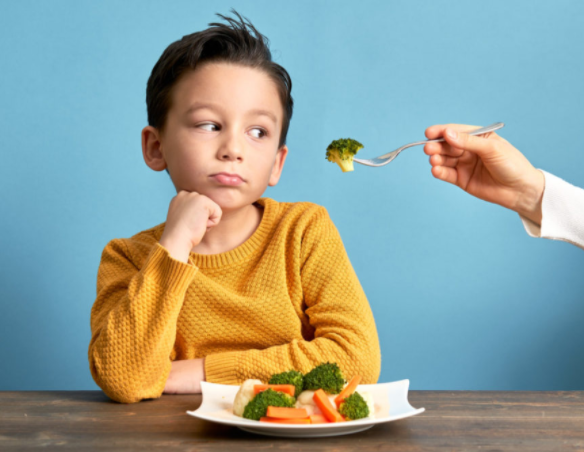Food Neophobia: Your parents were right when they asked you to try new foods
Food neophobia is a subtype of neophobia (fear of novelty). Avoiding new, unfamiliar foods is absolutely normal reaction but can lead to poorer food quality and increased health risks.
Every parent will certainly find recognition in the picture. A common subtype of neophobia (fear of novelty) is food neophobia, which occurs in almost all children, most intensively aged 4-7, but is also common within adults, especially among the elderly. According to research in Germany food neophobia is the main reason why Germans are not yet ready to eat insects. Link to the study: https://pubmed.ncbi.nlm.nih.gov/31554134/
Avoiding new, unfamiliar foods is absolutely normal - it is an innate safety response to potential environmental threats where many foods can be toxic. In addition, staying with well-known foods is associated with a sense of security. How to overcome food neophobia? You just have to taste the new food a sufficient number of times, sometimes up to 15 times before accepting it.
The legendary phrase “You have to get used to new tastes” got repeated often in our family. The brightest memory of my early childhood is related to my younger sister refusing to try a banana. As one year older and wiser sister, I knew that it is a must to try a banana because it is a delicious tropical fruit which is not available at grocery stores (Back in 1989 Estonia was part of Soviet Union, only local goods were available)
So why were the parents right? Research by Finnish and Estonian researchers * has shown that food neophobia is associated with poorer food quality: for example, neophobic people may have less fiber, protein and monounsaturated fatty acids in their diet and more saturated fat and salt.
Additionally, a significant association was found between food neophobia and adverse fatty acid profile and increased level of inflammatory markers in blood. Subsequently, food neophobia also increases the risk of developing cardiovascular diseases or type 2 diabetes.
*National Institute for Health and Welfare. "Food neophobia may increase the risk of lifestyle diseases." ScienceDaily. ScienceDaily, 18 June 2019. <www.sciencedaily.com/releases/2019/06/190618104826.htm>

